Early Termination of Lease Letter Template Guide
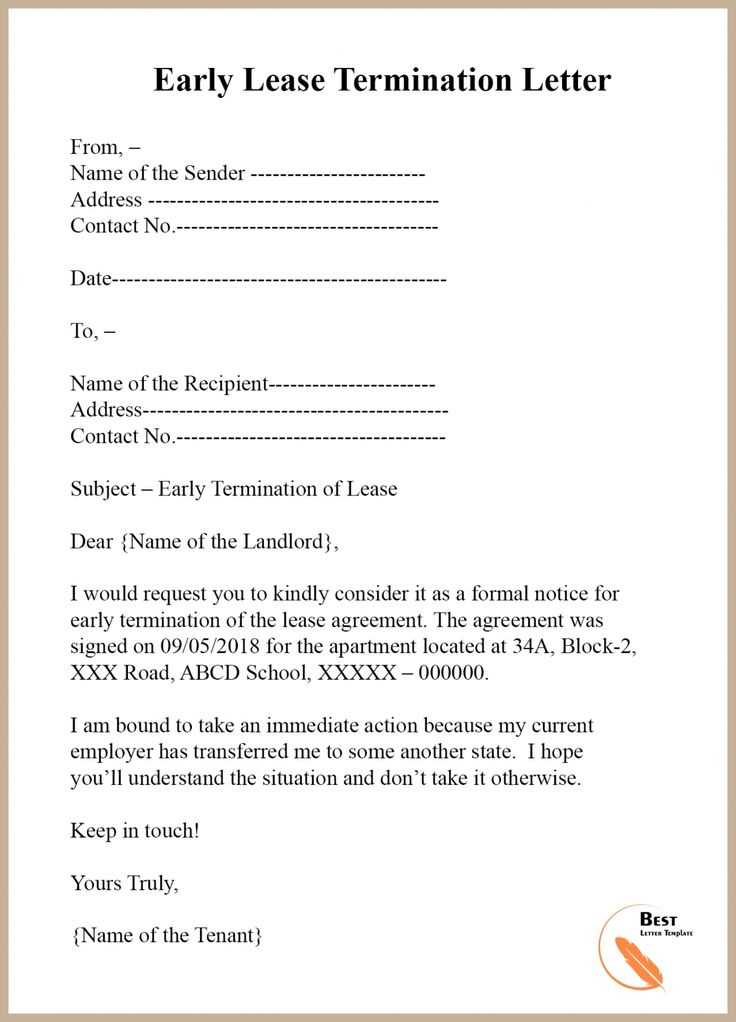
Sometimes, unforeseen circumstances may arise that require you to exit a rental contract ahead of schedule. Whether moving to a new location, facing financial challenges, or simply needing to adjust your living situation, it’s important to approach the situation professionally. Writing a formal notification can help ensure a smooth process, protect your rights, and fulfill legal obligations. This guide will walk you through the key steps involved in notifying your landlord about ending the rental agreement prematurely.
Understanding the Process
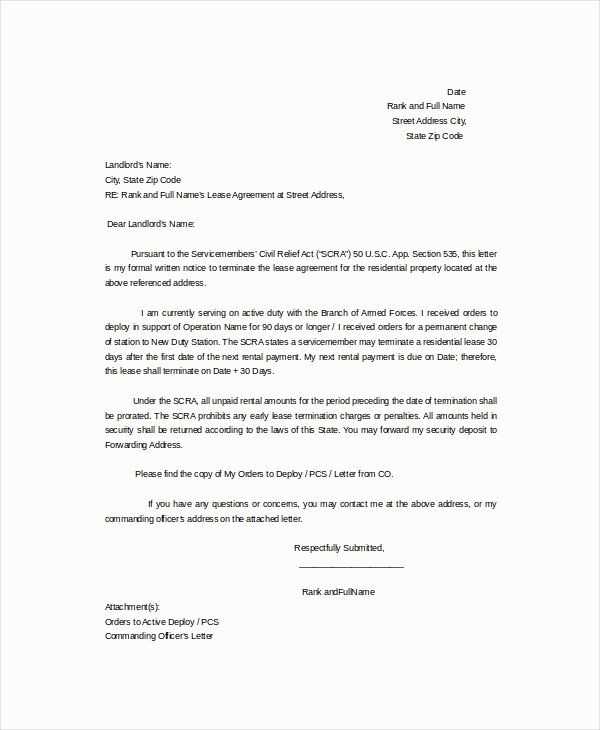
Before initiating the process of ending your contract early, it’s crucial to understand both your legal rights and responsibilities. Most rental agreements contain clauses outlining the specific steps and penalties for breaking the contract. Reviewing these sections carefully will give you a clearer picture of the potential financial consequences and what needs to be done to officially terminate the arrangement.
Key Information to Include
When crafting your formal notification, it’s essential to include certain details to ensure clarity and avoid potential confusion. Here are some of the most important elements to mention:
- Your full name and contact details
- Property address and rental unit specifics
- The date you intend to vacate
- Reason for ending the contract early (optional)
- A request for confirmation of receipt
Tips for Effective Communication
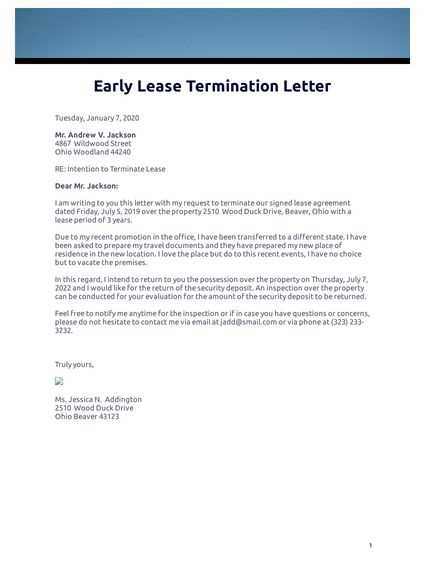
Clear and respectful communication with your landlord is key to avoiding unnecessary conflicts. While it is not always required, providing a valid reason for leaving early can be helpful in maintaining a positive relationship. Additionally, it’s important to follow up to ensure that the landlord has received and acknowledged your request. Make sure you send the notice in a timely manner, ideally well in advance of the required notice period.
Potential Consequences and Fees
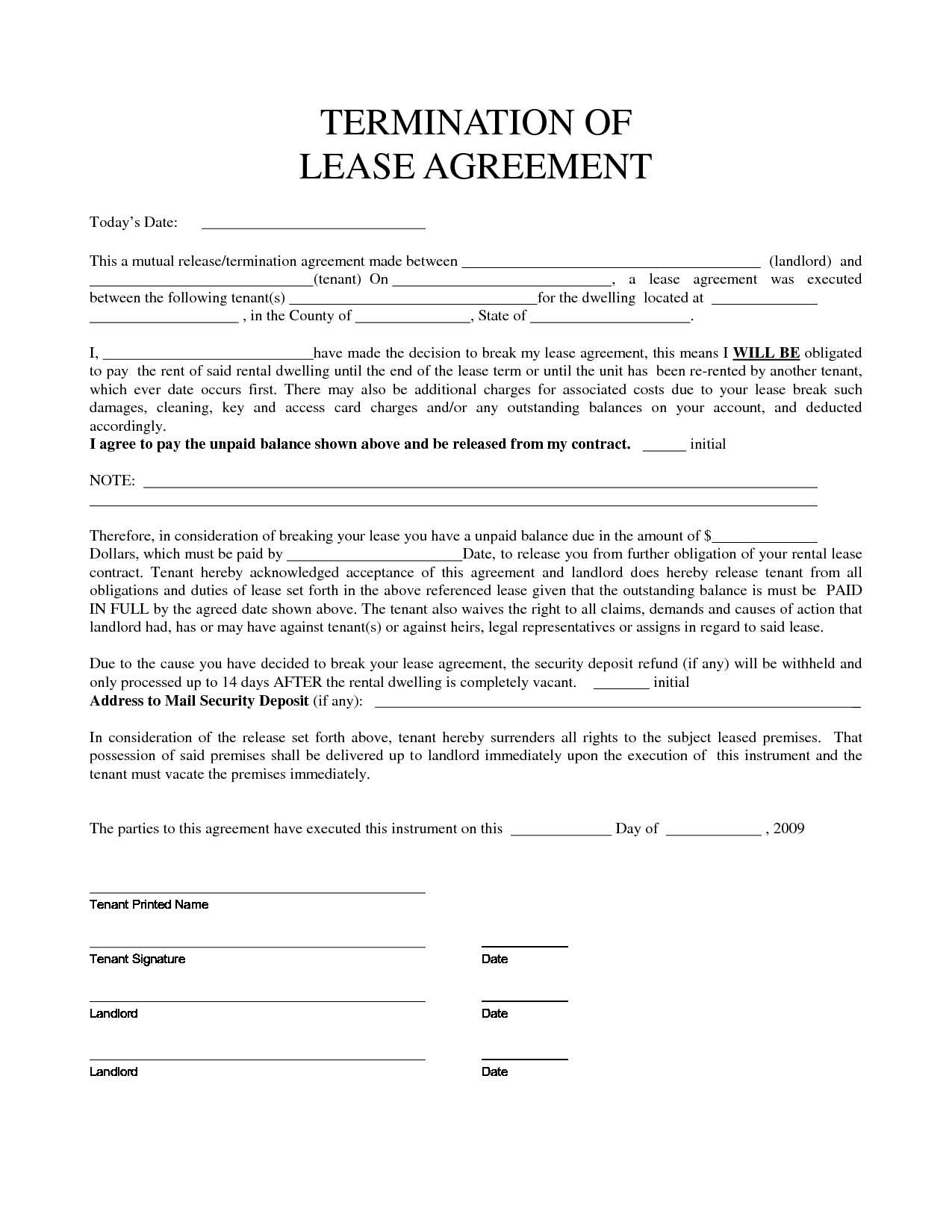
Keep in mind that there may be financial penalties associated with leaving before the end of your contract. These could include forfeiting your security deposit or being responsible for the rent until a new tenant is found. However, depending on the terms of your agreement, some landlords may be willing to negotiate, especially if the unit is easily re-rented.
Final Steps
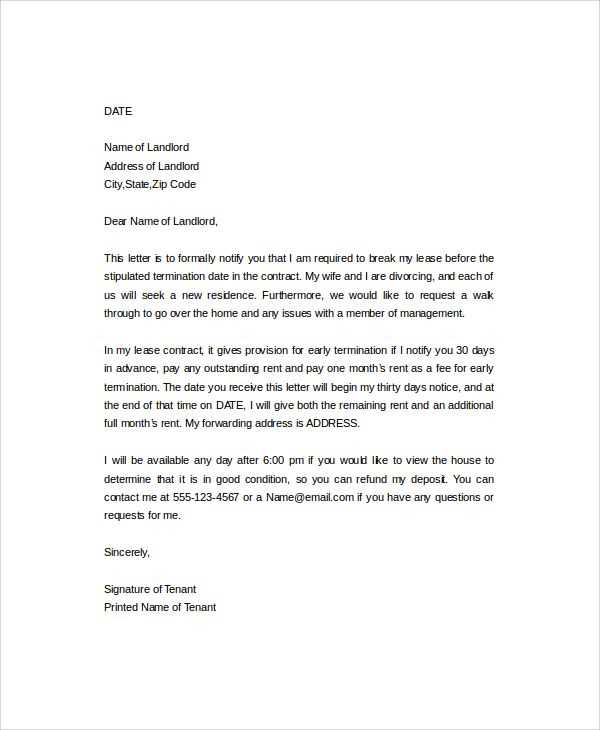
Once the landlord has acknowledged your request, ensure that the final steps are clearly laid out. This may include a walkthrough of the property to check for damages, returning keys, and settling any outstanding payments. Taking these steps will help ensure a smooth transition and prevent future disputes.
Understanding How to End a Rental Agreement Before the Scheduled Time
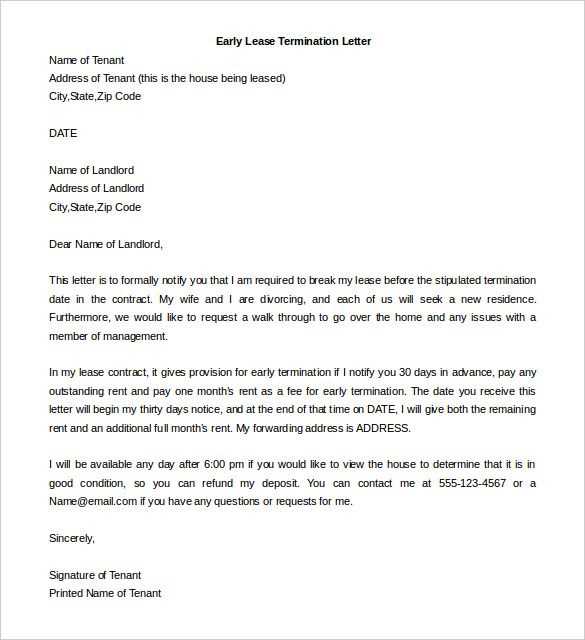
Sometimes, life circumstances require that you end your rental agreement sooner than planned. Whether due to a job relocation, personal reasons, or other urgent matters, it is important to know how to handle this situation properly. A formal and clear communication to your landlord is essential for a smooth and legally sound process. This section will guide you through the steps to effectively manage and communicate the decision to leave the property before the contract expires.
Reviewing the terms of your contract is one of the first steps in the process. Most agreements have clauses that outline what happens if you need to leave early, including potential penalties or conditions for ending the agreement early. Understanding these terms will help you avoid unexpected consequences and ensure that you follow the correct procedure.
When considering an early departure, it’s crucial to assess why you’re making this decision. Whether it’s a work transfer, financial difficulty, or another pressing issue, it’s often helpful to be aware of your reasoning, even if it’s not required to be included in your formal notice. Being transparent with your landlord can sometimes lead to a more cooperative process.
The process of drafting your notice involves clear communication about your intent and the steps you plan to take. You should include essential details such as the date you plan to leave, your contact information, and a request for confirmation from the landlord. Clarity is key to avoid misunderstandings, so make sure the notice is professional and complete.
Once the notice is written, ensure that you include all necessary components. The start and end dates, any reasons for leaving early, and any request to discuss the matter further are crucial. The more specific you are, the less room there will be for confusion. This can also help protect you legally in case of disputes.
Sending your official notice in a timely manner is an important next step. You should give adequate notice as required by your agreement, and it’s a good idea to use a reliable method of delivery, such as certified mail, to confirm receipt. This ensures that your landlord has received the notice and prevents any future misunderstandings about timing.
The method of delivery plays a critical role in ensuring the notice is legally binding and confirmed. Certified mail, hand delivery, or other methods that provide a receipt are the most effective. Make sure to keep a copy of the notice and any proof of delivery for your records in case of disputes or follow-up conversations.